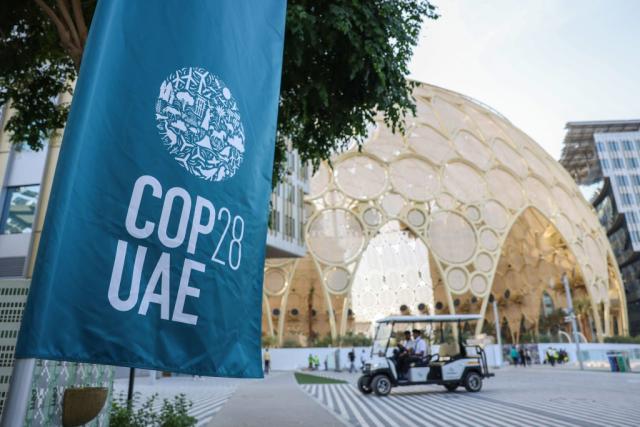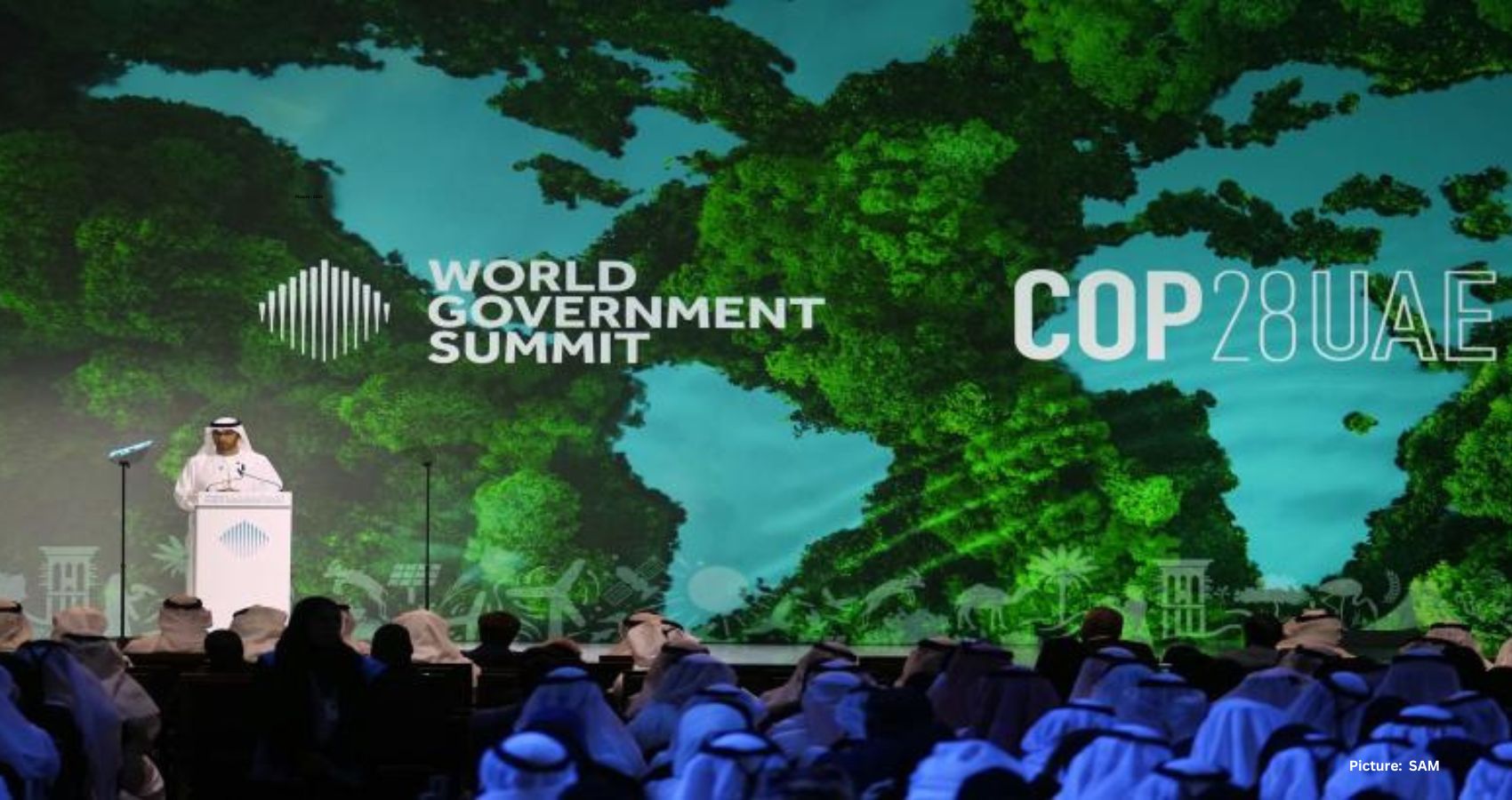What happens in COP28 on Dubai’s climate conference battleground in the first half of December 2023 may not result in bloodshed but its consequences could be drenched in blood, mass migration, and starvation.
Happily, about 70,000 participants including political leaders, diplomats, business managers, academicians, and researchers will be participating in COP28. The COP -Conference of Parties – is held annually by the United Nations Framework Convention on Climate Change (UNFCCC). This is the 28th COP scheduled to start in Dubai, United Arab Emirates, known as the expo-city, ever happy to welcome tourists and visitors.

Sadly, it is the time when the number of battlegrounds around the world is on the rise without any end in sight! Ukraine and Russia in northern Europe; Israel and Palestine in the Middle East; internal wars in Syria, Sudan and Sahel. United Nations Security Council, which is charged with ensuring international peace and security, continues the efforts to stall the battles but has not succeeded in ensuring the peace.
One more battleground, on the Gulf of Oman and the Persian Gulf, is opening from 30th November to 12th December in the expo-city of Dubai. The battleground will be over on 12th December, but the planetary-level war will certainly continue. It has the potential to be termed World War III, the war between humanity and nature. The UN Security Council is not charged to even start a dialogue for a ceasefire and making peace in that war. It is left to Bonn, Germany-based UNFCCC to fight the cause of WWII!
Categorically, all humans to varying degrees are responsible for starting and continuing this war. The choice of path to human development has now caused nearly irreversible damage to nature. It is the turn of nature now to hit back. Nature is reacting by causing droughts, floods, landslides, and wildfires that have started affecting human society across the borders of the countries. The hostages are poor of the world and they are rising in numbers.
World caught in a vicious cycle of chaos
As per a UN report released this year, extreme weather has caused the deaths of two million people and $4.3 trillion in economic damage over the past 50 years. The tragedy is that the poor suffer the most in extreme weather. Rich people have economic muscles, not only to ensure their survival but continue their onslaught on nature by emitting greenhouse gases. The richest one percent of the global population is responsible for the same amount of carbon emissions as the world’s poorest two-thirds, or five billion people, according to the research results released in November 2023. The worst is that rich people continue to invest their money more in polluting industries.
The planet is caught in a vicious circle of chaos in which even the rich would perish. We do not know when but perish they will. Because the rich depend on the market consisting of these five billion people to make their money. As the market starts suffering the rich would suffer too! As the doomsday scenario says, ‘sixth planetary extinction’ is on the way. The fifth extinction was 65 million years ago when dinosaurs and the ecosystem vanished.
To use the United Nations term used in Agenda 21, rather sarcastically, ‘No one is left behind’ by nature in its climate onslaught. And nature has been literally ‘inclusive’ in the destruction of human habitats! But let us not make a mistake, this larger war is also the result of the battles between factions. Factions include global south and global north, developed and developing countries. The list of factions also includes small-island-developing countries (SIDS), least developed countries (LDCs), indigenous groups, powerful fossil fuel businesses, farmers, and so on.
What happens in COP28 on Dubai’s climate conference battleground in the first half of December 2023 may not result in bloodshed but its consequences could be drenched in blood, mass migration, and starvation. COP after COP, the post-Paris Climate Agreement in 2015, the pledges and promises made by 198 countries that are party to climate conventions. 195 countries that are Parties to the Paris Climate Agreement committed through Nationally Determined Contributions NDCs to reduce emissions of greenhouse gases. What is more, the commitments are made by the developed countries to provide USD 100 billion to the developing countries for reducing emissions. But the promises and pledges are not met, and implementation is not only slow but miserable and inadequate and almost suicidal.
The decade from 2010 to 2019 had the highest increase in greenhouse gas emissions in human history; the last four months of 2023 are the hottest on record; the last 11 months have caused the highest economic losses due to extreme climate events. The window to limit warming to 1.5°C, the target set by the world leaders in the Paris Climate Agreement, is rapidly closing; and the gap between where emissions should be and where they are is widening fast as per the UNEP Emission Gap Report (EGR) released recently.
So what one should expect from 2023
Experts have stated over the last year the expectations: strong action-oriented negotiations; making mitigation and adaptation finance available to developing countries as a matter of emergency; operationalizing loss and damage fund; focussing on non-CO2 greenhouse gases like methane; community-based and sub-national climate actions; undertaking out-of-box technologies, including carbon dioxide removal (CDR); space reflected solar electricity and so on.
And what is NOT expected from COP28
Firstly, the world is not expecting non-verified claims by countries, particularly by world leaders in COP28. Such claims promote greenwashing – misleading the public to believe that climate action is being taken for net zero. There is more risk from greenwashing than the climate crisis itself, as stated by UN Secretary-General Antonio Guterres.
Secondly, the world is NOT expecting that the vital issues related to mitigation, adaptation and finance are sidelined and duped by conned climate diplomacy. Recently, we have witnessed commotions like denouncing UAE’s presidency as ‘oil nation’s presidency’; prioritizing the action on mitigating fugitive methane by ignoring the reduction of emissions of carbon dioxide; including private finance in meeting the governmental public finance pledge of USD100 billion annually from 2020; asking China to contribute to the finances to developing countries; prioritizing carbon-offset; changing the definitions of developing countries to ‘least-developing-countries; uncertain schemes like carbon-trading and carbon removal by overlooking the mitigation through lifestyle change.
Thirdly, the world is NOT expecting speeches by world leaders with deceptive declarations and diplomacy-coated false promises delivered in the COP. In this context decision of President Joe Biden not to attend COP28 is indeed welcome. Better not to be there than tricking the world with fake pledges!
Fourthly, the world is NOT expecting alternative technologies like battery-operated EVs and solar panels to be considered climate-friendly unless the environmentally friendly reuse, recycling and disposal of panels and batteries are integral parts of such technologies.
Fifthly, the world is not expecting the issue of climate justice to be discussed without historical context. Recently, the report has revealed that carbon emissions during colonial rules of Europeans and Japanese were assigned to the countries that were engaged in colonial rules after the industrial revolutions. The world, in this context, is not expecting to keep the International Court of Justice excluded from the issue of climate crimes during World War III. Punitive measures could range from exposing the countries by ‘naming and shaming’ to more serious ‘climate-sanctions’.
Can Dubai succeed in meeting these expectations? Let us wait to see by the end of COP28 if the negotiators are serious about delivering what the world is expecting and also not expecting.
(The author is a noted environmentalist, former Director UNEP, and Founder Director, Green TERRE Foundation, Pune, India. Views are personal)
Read more at: https://www.southasiamonitor.org/spotlight/hopes-and-expectations-cop28-world-tipping-point-climate-change


